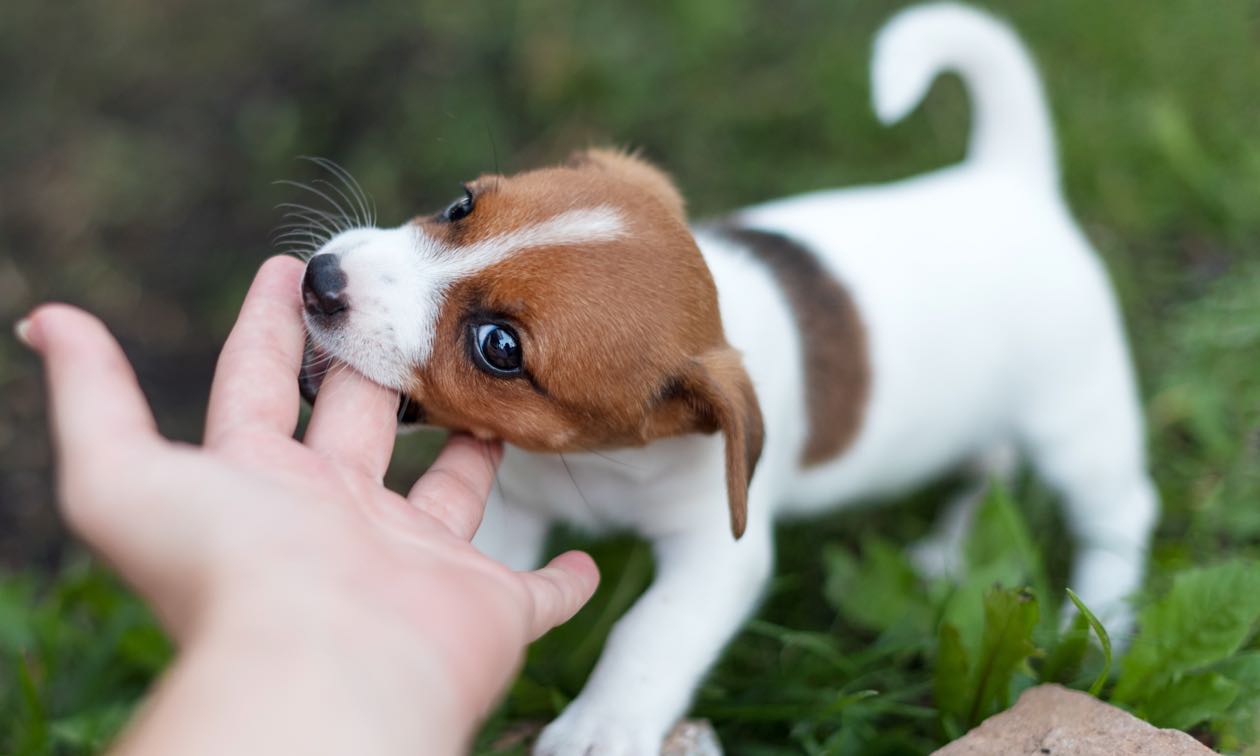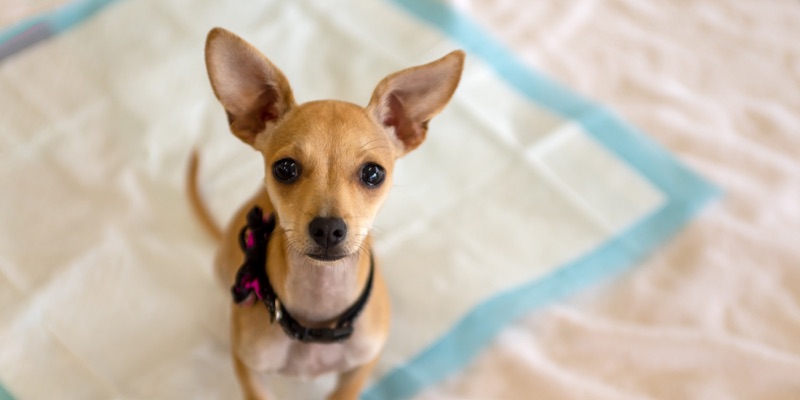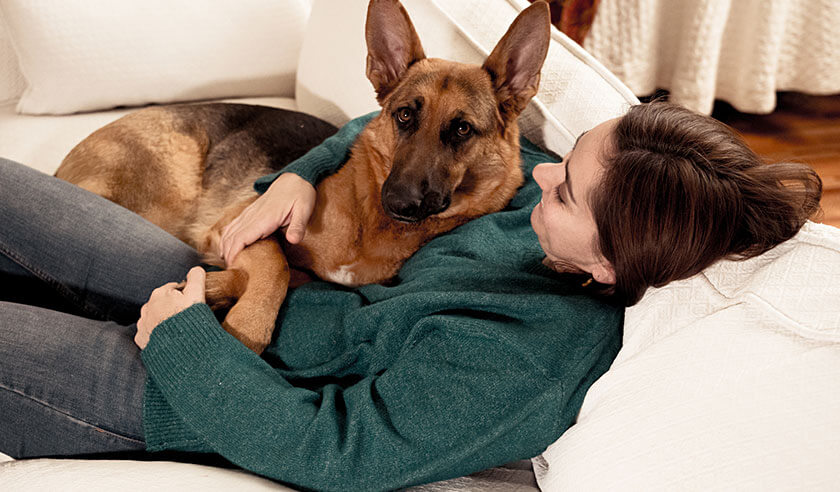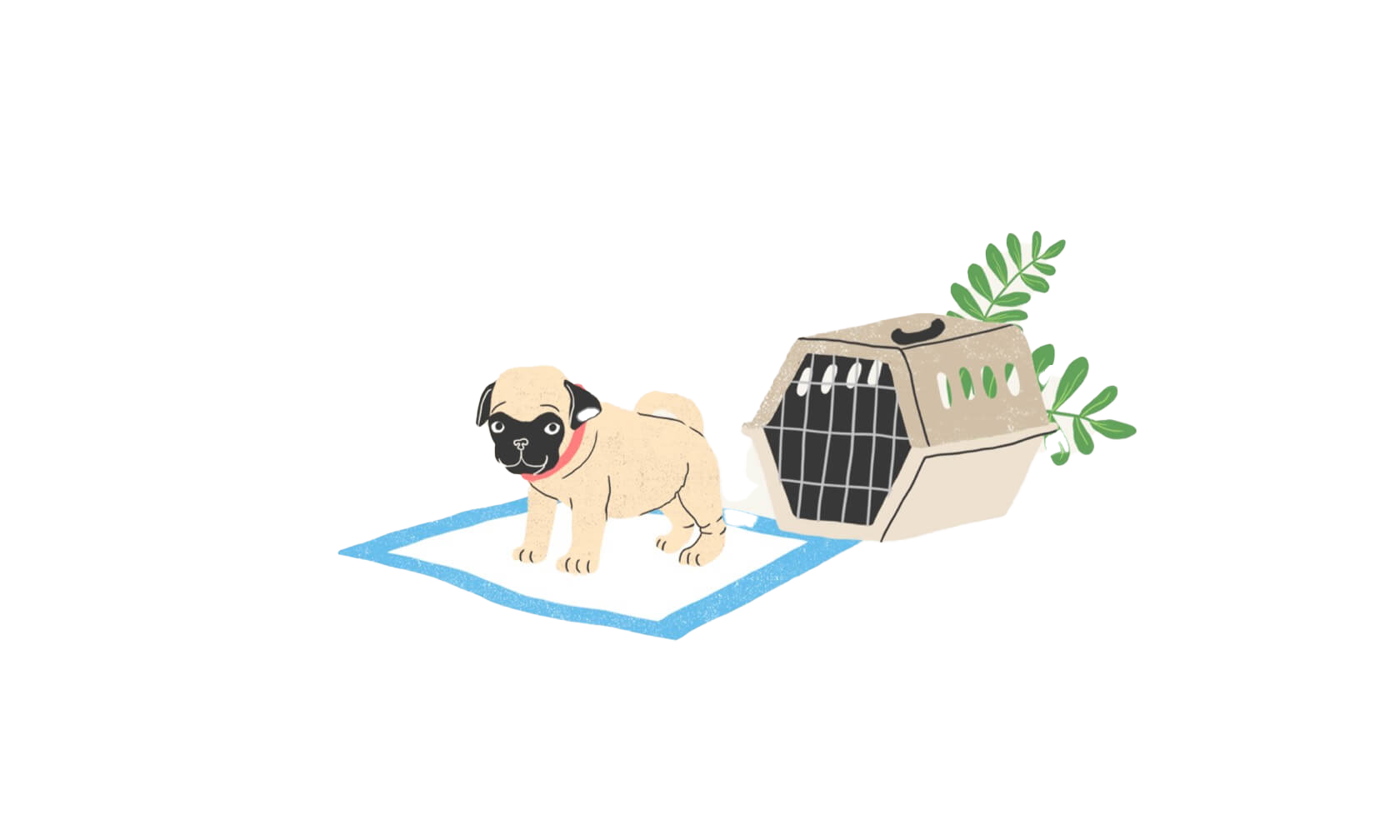Tired of constant puppy nipping and biting? Those needle-sharp puppy teeth can hurt quite a bit, injuring your hands or shredding your clothes. Training your puppy not to bite is easier than you may think, but it does require time, patience, and consistency. Understanding how to stop puppy biting can give you the tools to train this habit out of your pup. When done right, your puppy will learn what’s okay to put their mouth on and what isn’t as they go through their nipping phase.
Why Do Puppies Bite?
Nipping, mouthing, and biting are normal and natural puppy behaviors that happen for different reasons.
Teething
During the teething process, puppies tend to nip and bite more than usual, as the new teeth pushing through their gums are causing discomfort. To help ease any pain, they tend to bite and chew.
Exploring
Without thumbs to grab things in the environment, a dog relies on its mouth to check things out.
Play
If you’ve ever watched dogs play together, you’ll notice that they use their mouths quite a lot. They’ll nip at legs, bite at scruffs, or play the rather entertaining “bitey face” game. Without consistent management and training, a puppy will have a hard time learning that playing with you is different than playing with another dog. This mouthy play with each other is important for puppies to learn bite inhibition — how hard can they “bite” another dog without hurting.
Breed Predisposition
Certain breeds of dogs use their mouths more than others because it was a part of the job we bred them to do. For example, certain types of herding breeds nip at heels to drive livestock, such as Australian Cattle Dogs or Australian Shepherds. You may see these breeds trying to herd you, your children, or other pets by nipping at your feet or legs. Retrievers can also be more predisposed to mouthiness, as they want to grab and hold items in their mouths.
Overstimulation
If a lot is going on around them, many puppies get overwhelmed and will chase, nip, or bite at fast-moving hands or arms. In this case, puppies often just need some quiet time to decompress or a nap!
When Does a Puppy Stop Biting?
If you are consistent with managing and training puppy nipping, most dogs grow out of their biting phase when they finish teething and have all their adult teeth — around 7 months old. But as mentioned above, some breeds have a strong nipping instinct and require consistent management and training throughout adolescence and into early adulthood.
How To Train a Puppy Not To Bite
Make Sure Your Puppy Has Lots of Appropriate Chews and Tug Toys
Have a few different kinds of chews and toys freely available for your puppy to chew on. To keep these from getting boring for your pup, switch them out intermittently with different options. Stash a few of your puppy’s favorite tug or squeaky toys within easy reach for you so you can whip them out when your puppy starts to get extra nippy.
Interrupt Nipping and Biting
If your puppy puts teeth on skin (or clothing), immediately freeze and say, “ouch!” Try not to jerk your hand away, as that fast motion usually entices a puppy to keep playing. If your puppy backs off and stops biting, calmly praise them. You then have the option to continue petting or playing, or, if your puppy seems too excited and will go back to nipping immediately, give them a chew or toy to enjoy by themselves in their crate or playpen.
This technique is just like how your puppy learns bite inhibition with other puppies. Bite too hard — or at all, in the case of playing with people — and the fun stops. If a puppy keeps their teeth off of you, play or petting continues. It’s all about being consistent with your reinforcement and consequences so your puppy can learn good habits.
Redirect Your Puppy’s Nipping
If your puppy starts going for your hands or clothing, grab one of the special toys or chews you’ve stashed and redirect their attention to that. If they’re chewing or chasing the toy, they aren’t chewing or chasing you.
It’s best to avoid yelling, hitting, or pushing your puppy away when they start nipping or biting. Some puppies will get confused and think you’re still trying to play if you push them away, which can just amp up the nipping energy. And the last thing you want is your puppy to associate you with something scary or painful. If you’re worried that your puppy’s biting is bordering on aggression or related to resource guarding, it’s crucial to connect with a certified professional dog trainer as soon as possible to address it.
Above all, the thing to remember for puppy biting is to redirect, redirect, redirect! If you’re constantly giving your puppy something appropriate to bite and chew on, they’re less likely to want to go after your hands. And as they mature and finish teething, you’ll have built up strong mouth manners and good habits.
ZPC-01805R1





